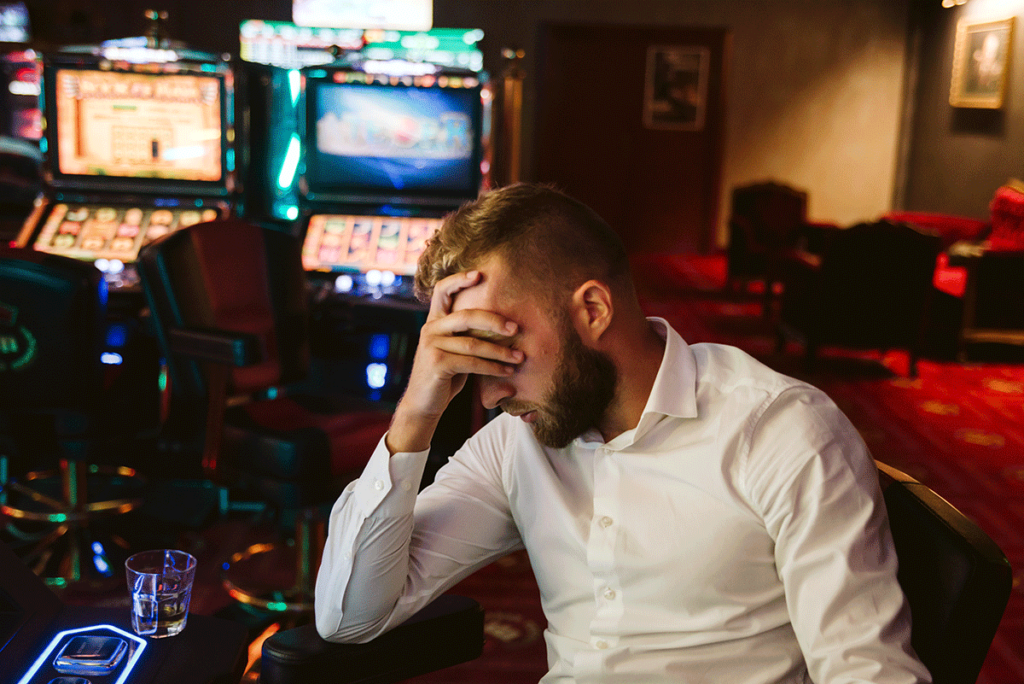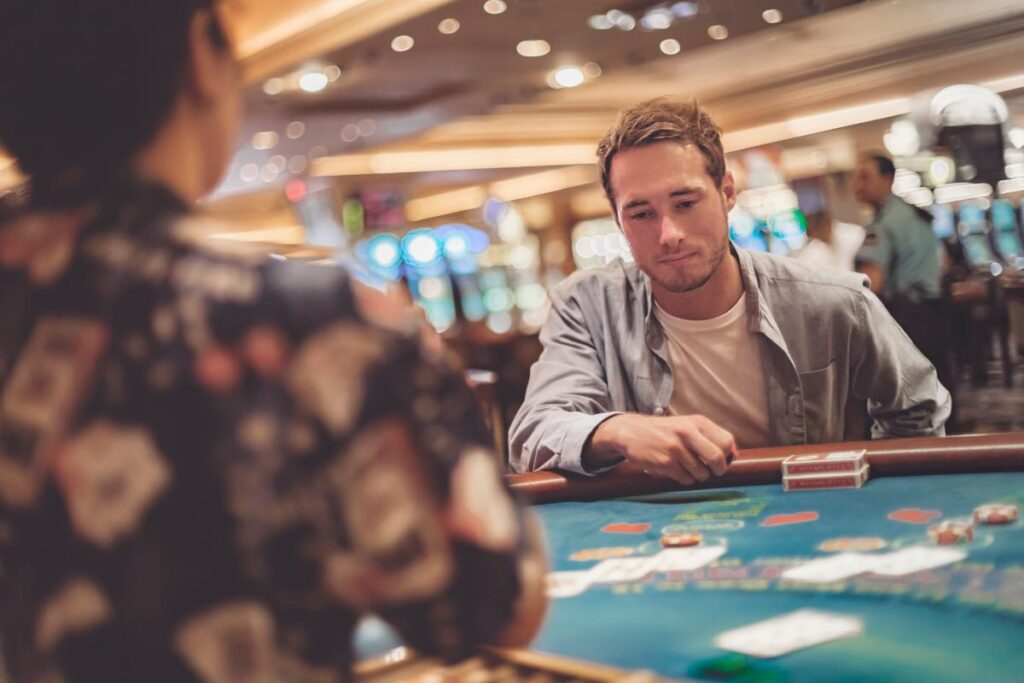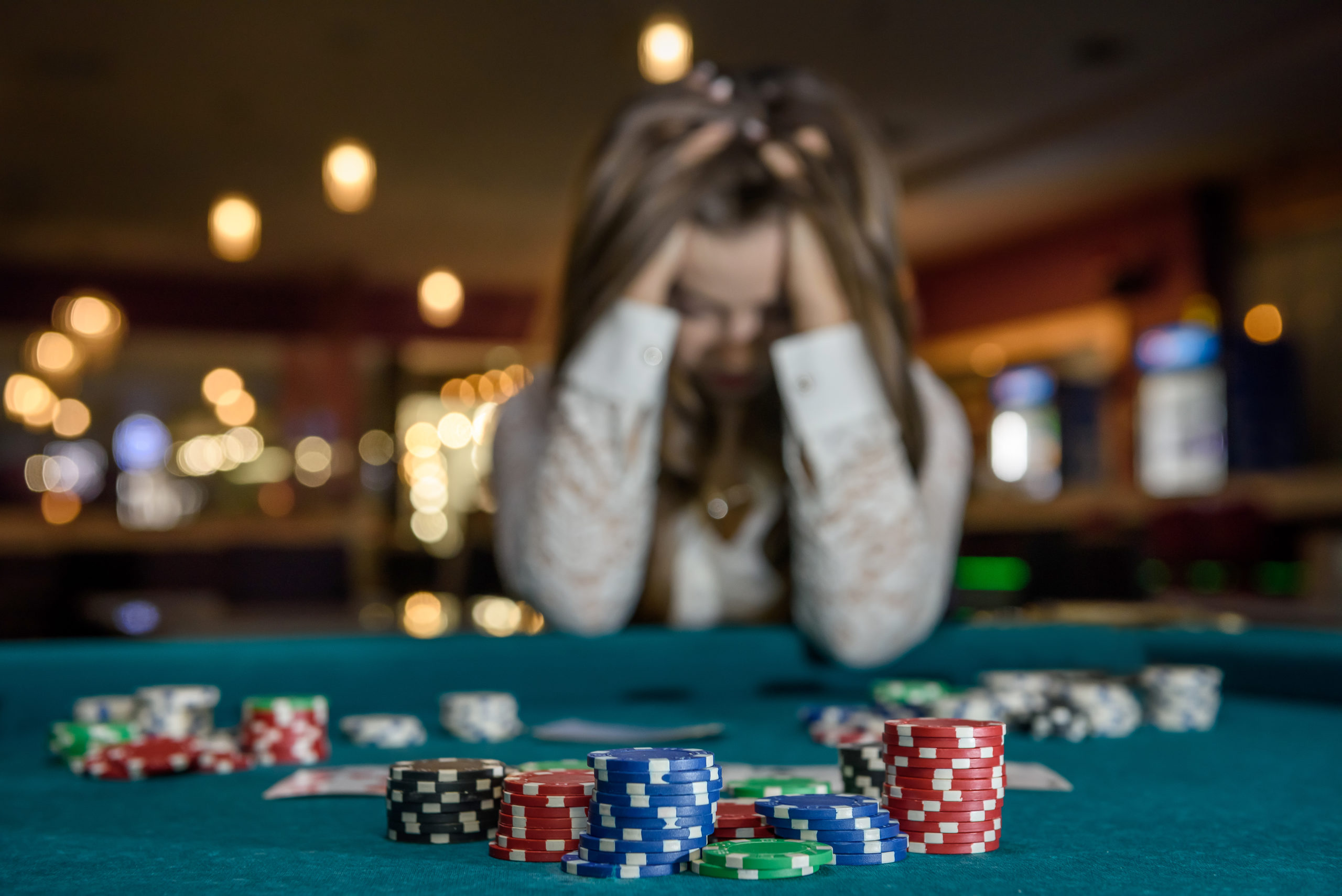Gambling Psychology - Reason And Treatment For Addiction
In the world of gambling psychology, understanding why people become addicted to gambling and how to treat this addiction is crucial. Gambling can be thrilling and exciting, but for some, it can spiral into compulsive behavior that leads to serious consequences.
Author:James PierceReviewer:Elisa MuellerFeb 12, 2024110 Shares21.9K Views

In the world of gambling psychology, understanding why people become addicted to gambling and how to treat this addiction is crucial. Gambling can be thrilling and exciting, but for some, it can spiral into compulsive behavior that leads to serious consequences. By delving into the reasons behind gambling addiction and exploring effective treatment approaches, we can offer hope to those struggling with this issue.
The Psychology Of Gambling
The allure of gambling stems from its embrace of uncertainty. Whether it's the roll of a die, the spin of a roulette wheel, or the deal of cards, humans are instinctively drawn to the thrill and suspense preceding an unpredictable outcome.
As players anticipate potential rewards, the brain releases dopamine, a neurotransmitter associated with pleasure, inducing a euphoric rush commonly known as the "gamblers' high." This neurochemical response reinforces the inclination to gamble, compelling individuals to pursue that elusive jackpot.
Regrettably, this dopamine-fueled cycle can spiral into addiction. Compulsive gambling, recognized as a behavioral disorder or ludomania, manifests as an uncontrollable urge to gamble, despite its detrimental impact on one's life. This addiction takes a toll on mental well-being, relationships, and financial stability, underscoring the profound consequences of unchecked gambling behavior.
Personal Traits And Gambling Behavior
Personal traits play a significant role in shaping an individual's gambling behavior. These traits encompass a wide range of characteristics, including personality traits, cognitive abilities, emotional regulation, and motivational factors. Understanding how these traits influence gambling behavior is essential for both researchers and clinicians in addressing problem gambling and promoting responsible gambling practices. Here are some key personal traits and their impact on gambling behavior:
Personality Traits
Certain personality traits have been linked to gambling behavior. For example, individuals with high levels of sensation-seeking, impulsivity, and risk-taking tendencies are more likely to engage in gambling activities. They may find the excitement and thrill of gambling particularly appealing, leading them to take greater risks and spend more money than others.
Cognitive Abilities
Cognitive factors such as decision-making skills, problem-solving abilities, and cognitive biases also influence gambling behavior. For instance, individuals with poor decision-making skills or a tendency to overestimate their chances of winning may engage in excessive gambling and exhibit poor judgment when it comes to managing their finances.
Emotional Regulation
The ability to regulate emotions effectively plays a crucial role in determining gambling behavior. People who struggle with emotional regulation may turn to gambling as a means of coping with stress, anxiety, or negative emotions. However, this can lead to problematic gambling behavior, as individuals may use gambling as a maladaptive coping mechanism rather than addressing the underlying issues.
Motivational Factors
Motivation also plays a significant role in gambling behavior. Some individuals may gamble for entertainment purposes or social interaction, while others may be driven by the desire to win money or escape from reality. Understanding the underlying motivations behind gambling behavior can help identify individuals at risk of developing gambling problems and tailor interventions accordingly.
Individual Differences
It's important to recognize that individual differences exist in how personal traits interact with gambling behavior. What may drive one person to gamble excessively may not have the same effect on another individual. Factors such as age, gender, cultural background, and socioeconomic status can all influence how personal traits manifest in gambling behavior.
Social And Economic Impact
The impact of gambling on society is multifaceted, encompassing both beneficial and detrimental aspects. On the positive side, it serves as an economic stimulant, invigorating local economies through revenue generation and job creation. Whether through traditional casinos, online platforms, or lotteries, gambling activities contribute to tax revenues, which can be channeled into vital public services such as education, healthcare, and infrastructure.
Conversely, the negative repercussions of gambling cannot be overlooked. The socioeconomic costs of gambling addiction are significant, spanning heightened healthcare expenses, legal entanglements, and the strain on social support systems. Additionally, individuals grappling with addiction may resort to illicit or unethical means to finance their habit, fostering an environment conducive to elevated crime rates in certain regions.
Moreover, the toll of gambling addiction extends beyond financial implications, impacting interpersonal relationships and familial dynamics. The stress of financial instability, coupled with the deception and emotional volatility associated with compulsive gambling, can lead to fractured families and heightened levels of psychological distress.
Neurobiology Of Gambling Addiction
The neurobiology of gambling addiction provides valuable insights into the complex interplay of brain mechanisms that underlie compulsive gambling behavior. Research has shown that gambling addiction shares similarities with substance addiction in terms of its impact on the brain's reward system.
When individuals gamble, the brain releases dopamine, a neurotransmitter associated with pleasure and reward, in response to winning outcomes. Over time, repeated exposure to gambling-related stimuli can lead to neuroadaptations in the brain, resulting in heightened sensitivity to gambling cues and diminished control over gambling behavior.
Neuroimaging studies have identified specific brain regions involved in the development and maintenance of gambling addiction. The mesolimbic dopamine system, which includes structures such as the nucleus accumbens and the ventral tegmental area, plays a central role in the processing of rewards and reinforcement learning. Dysregulation of this system has been implicated in addiction disorders, including gambling addiction.
Also, regions of the prefrontal cortex, such as the dorsolateral prefrontal cortex and the orbitofrontal cortex, are involved in decision-making, impulse control, and inhibitory processes. Dysfunction in these areas can contribute to the inability to resist gambling urges and the continuation of compulsive gambling behavior despite negative consequences.
Treatment Approaches For Gambling Disorders
Treatment approaches for gambling disorders typically involve a combination of psychotherapy, medication, and support groups to address the multifaceted nature of the condition. Cognitive-behavioral therapy (CBT) is one of the most widely used therapeutic approaches for treating gambling disorders.
CBT aims to help individuals identify and change unhealthy gambling-related thoughts and behaviors, develop coping strategies to manage urges and cravings and address underlying issues contributing to the addiction. Through cognitive restructuring and behavioral interventions, individuals can learn to challenge distorted beliefs about gambling and develop healthier ways of coping with stress and negative emotions.
In addition to CBT, other forms of psychotherapy, such as motivational interviewing and mindfulness-based interventions, may also be beneficial in treating gambling disorders. Motivational interviewing helps individuals explore their ambivalence about change and enhance their motivation to engage in treatment.
By fostering a collaborative and non-confrontational therapeutic relationship, therapists can help individuals identify their reasons for change and set realistic goals for recovery. Mindfulness-based interventions, such as mindfulness meditation and acceptance and commitment therapy (ACT), can help individuals develop greater awareness of their thoughts and feelings related to gambling and learn to respond to them in a non-judgmental and adaptive manner.
Medication may also be prescribed as part of the treatment approach for gambling disorders, particularly for individuals with co-occurring mental health conditions such as depression or anxiety. Selective serotonin reuptake inhibitors (SSRIs), antidepressants, and mood stabilizers are among the medications that may be used to address symptoms of comorbid disorders and stabilize mood. However, medication alone is typically not sufficient to treat gambling disorders and is often used in conjunction with psychotherapy and other interventions.
Support groups, such as Gamblers Anonymous (GA), provide a valuable source of peer support and encouragement for individuals in recovery from gambling addiction. By sharing their experiences and learning from others who have overcome similar challenges, individuals can gain a sense of solidarity and hope as they work towards recovery from gambling disorders.
Responsible Gambling
Recognizing the potential hazards, the significance of responsible gambling practices cannot be emphasized enough. For those who engage in gambling for recreational purposes, it's vital to establish clear boundaries regarding both time and financial investment. Setting a budget and adhering to it can serve as a safeguard against impulsive decisions and monetary losses.
Moreover, gambling operators bear a significant responsibility in fostering responsible gaming environments. They can implement a range of measures, including setting deposit thresholds, facilitating self-exclusion options, and disseminating information about resources for responsible gambling. Furthermore, initiatives focused on responsible gambling education and awareness campaigns can help individuals better understand the risks associated with excessive gambling.
Gambling Psychology - FAQ
What Is The Mindset Of A Gambler?
Some key psychological aspects include: Risk-taking: Gambling inherently involves taking risks, and individuals with a gambler's mindset are often more inclined to embrace risk. They may find excitement and a sense of control in taking calculated risks or even giving in to impulsive decisions.
What Is The Psychological Reason For Gambling?
Dr. Fong explained that people with gambling disorders psychologically view gambling as the answer to their problems. When they are at this point with their addiction, gambling is no longer seen as entertainment. They now view gambling as a means to cope with anxiety or stress, or as their primary source of income.
How Does Gambling Affect The Brain?
Studies have linked gambling disorders to variations in a variety of brain regions, particularly the striatum and prefrontal cortex, which are involved in reward processing, social and emotional problems, stress, and more. Some of these differences may be attributable to genetics
Conclusion
Gambling psychology sheds light on the complex factors that contribute to gambling addiction and offers insights into effective treatment methods. By addressing underlying psychological, biological, and social factors, individuals can overcome their addiction and regain control of their lives. We can work to reduce the harm that gambling addiction causes and encourage healthier behaviors in our communities with continued research and support.

James Pierce
Author

Elisa Mueller
Reviewer
Latest Articles
Popular Articles

